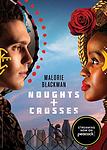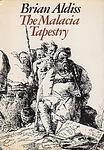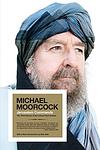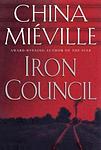The Greatest British "Fiction, Alternate History, Speculative Fiction" Books Since 1900
Click to learn how this list is calculated.
This list represents a comprehensive and trusted collection of the greatest books. Developed through a specialized algorithm, it brings together 300 'best of' book lists to form a definitive guide to the world's most acclaimed books. For those interested in how these books are chosen, additional details can be found on the rankings page.
Genres
Alternate History is a genre of fiction that explores the possibilities of what could have happened if certain historical events had taken a different course. It involves imagining a world where key moments in history have been altered, resulting in a different outcome. This genre often blends elements of science fiction, fantasy, and historical fiction, and can provide thought-provoking insights into the impact of historical events on our present-day world.
Speculative fiction is an umbrella genre encompassing narrative fiction with supernatural or futuristic elements. This includes genres such as science fiction, fantasy, horror, supernatural fiction, superhero fiction, utopian and dystopian fiction, apocalyptic and post-apocalyptic fiction, and alternate history. The unifying factor of speculative fiction is its departure from the narrative constraints of reality, exploring imaginative and often profound questions that challenge our understanding of the world and our place within it. These stories often delve into themes like the human condition, social commentary, and the exploration of philosophical and ethical dilemmas through the lens of the fantastical or the yet-to-be-possible. By pushing the boundaries of the known, speculative fiction invites readers to consider the myriad possibilities of existence and the potential consequences of our actions in worlds that are, at once, vastly different from and eerily similar to our own.
Countries
Date Range
Reading Statistics
Click the button below to see how many of these books you've read!
Download
If you're interested in downloading this list as a CSV file for use in a spreadsheet application, you can easily do so by clicking the button below. Please note that to ensure a manageable file size and faster download, the CSV will include details for only the first 500 books.
Download-
1. Watchmen by Alan Moore
Set in an alternate history where superheroes emerged in the 1940s and 1980s, the story follows a group of retired superheroes who are brought out of retirement after the murder of one of their own. As they investigate, they uncover a plot that could change the course of history and the balance of world power. The book explores complex themes such as the morality of power, the definition of heroism, and the value of human life.
-
2. Noughts and Crosses by Malorie Blackman
"Noughts and Crosses" is a thought-provoking novel set in a dystopian society where racial segregation is reversed. It follows the lives of two main characters: a girl from the ruling class (Crosses) and a boy from the underclass (Noughts). Despite their different backgrounds, they form a deep bond that eventually turns into a romantic relationship, challenging the societal norms and prejudices. The novel explores themes of love, racism, and power, offering a poignant commentary on the repercussions of societal divisions.
-
3. Seven Days In New Crete by Robert Graves
In this speculative fiction novel, a poet from the mid-20th century is transported into a future utopian society on the island of Crete, which has been renamed New Crete. This society has rejected industrialization and lives in harmony with nature, guided by matriarchal principles and the worship of a goddess. The poet, initially enchanted by the peaceful and artistic way of life, soon discovers underlying tensions and contradictions, particularly when he becomes involved in the island's rituals and politics. As a festival that reenacts a mythic battle between the gods approaches, the poet's presence and actions inadvertently set off a chain of events that challenge the society's values and stability, leading to a dramatic conclusion that questions the viability of utopia.
-
4. The Malacia Tapestry by Brian W. Aldiss
Set in an alternate Renaissance-like city where evolution is mutable and exotic creatures roam, the novel follows the life of an actor who navigates the complex social and political tapestry of Malacia. The city is a place of both beauty and decadence, where ancient traditions clash with new ideas, and the protagonist must contend with love affairs, rivalries, and the whims of a capricious prince. As he strives for success on and off the stage, he becomes entangled in the deeper machinations of a society resistant to change, exploring themes of progress, control, and the role of art in reflecting and challenging the status quo.
-
5. Jerusalem Commands by Michael Moorcock
In "Jerusalem Commands," readers are transported through a fantastical and surreal narrative that follows the adventures of Colonel Pyat, an unreliable and often delusional protagonist. Set against the backdrop of the early 20th century, the novel weaves through the chaos of a world between wars, touching upon themes of imperialism, addiction, and the quest for identity. Pyat's journey is marked by a series of escapades and misadventures that take him from Europe to Africa, exposing the dark underbelly of colonialism and the human psyche. The book is the third in a series, characterized by its rich historical tapestry and a protagonist who is as charismatic as he is morally ambiguous, leaving readers to question the very nature of truth and history.
-
6. The Eyre Affair by Jasper Fforde
In a parallel 1985 where literature is taken to extremes, a literary detective named Thursday Next navigates a world where the boundaries between reality and fiction are blurred. When a criminal mastermind begins kidnapping characters from classic novels, Thursday must enter the pages of Charlotte Brontë's "Jane Eyre" to pursue the villain and restore the beloved story to its rightful course. Her journey is fraught with danger, wit, and a touch of romance, as she contends with a time-traveling father, a pet dodo, and the complexities of her own life entwined with the fictional landscapes she protects.
-
7. Anno Dracula by Kim Newman
In this alternate history novel, the world is a macabre tapestry where Count Dracula has not only survived but triumphed, marrying Queen Victoria and spreading vampirism throughout the British Empire. The narrative weaves a complex, gothic tale where historical and fictional characters coexist. As the vampire elite rise to power and influence, a gripping story of political intrigue, horror, and murder unfolds, with a Jack the Ripper-like figure preying on vampire prostitutes in London's shadowy streets. The book explores themes of class, power, and the nature of monsterhood, all set against the rich backdrop of a Victorian society transformed by the undead.
-
8. Pavane by Keith Roberts
Set in an alternate history where the Protestant Reformation was crushed and the Catholic Church dominates Europe, the book presents a series of interconnected stories unfolding in a 20th-century England still feudal in nature. The narrative weaves through the lives of various characters, from a steam-engine driver to a noblewoman, each story revealing facets of a society where technology progresses under the Church's restrictive influence. The tales, akin to a dance, explore themes of rebellion, tradition, and the delicate interplay of power and control, all set against the backdrop of a world that evolved along a path starkly different from our own.
-
9. The Alteration by Kingsley Amis
Set in an alternate history where the Reformation never occurred, the book explores a world dominated by a powerful Catholic Church. The story follows a young choirboy with a beautiful singing voice who is slated to undergo castration to preserve his vocal purity for the Church. As he becomes aware of the implications of this "alteration," he is torn between his duty to the religious institution and the desire for a normal life. The narrative delves into themes of personal freedom, destiny, and the far-reaching influence of an unchallenged theocracy on art, science, and individual rights.
-
10. The Separation by Christopher Priest
"The Separation" by Christopher Priest is a thought-provoking novel that explores the concept of alternate histories. Set during and after World War II, it follows the lives of twin brothers, Joe and Jack Sawyer, who find themselves on different sides of the conflict. Through a series of intertwining narratives, the book delves into the consequences of their choices and the impact it has on their personal lives and the world at large. Blurring the lines between reality and fiction, the novel raises profound questions about identity, memory, and the nature of truth.
-
11. Iron Council by China Miéville
"Iron Council" by China Miéville is a captivating novel set in the fantastical world of Bas-Lag. The story follows a group of rebels and outcasts who form the Iron Council, a revolutionary movement fighting against an oppressive regime. As they navigate through treacherous landscapes and encounter various creatures, the Iron Council seeks to overthrow the government and create a utopian society. The book explores themes of revolution, loyalty, and the power of collective action, offering a thrilling and thought-provoking journey through a richly imagined universe.
-
12. Aztec Century by Christopher Evans
This science fiction novel unfolds in an alternate world where the Aztec Empire has risen to global dominance by the 20th century. Through the eyes of the British princess Catherine, who finds herself caught in the political machinations and cultural clashes of this powerful empire, the narrative explores themes of imperialism, technology, and resistance. As Catherine navigates the complexities of her new life and the intrigues of the Aztec court, she becomes deeply involved in a revolutionary movement. The story delves into the impact of colonialism and the potential paths of technological and societal development, offering a richly imagined alternative history that challenges the Eurocentric narrative of world progress.
-
13. Europe In Winter by Dave Hutchinson
This novel is a thrilling continuation of a science fiction series set in a fragmented future Europe, where borders are fluid and allegiances are ever-changing. The story follows a complex web of spies, assassins, and ordinary citizens as they navigate a continent where the Union is crumbling and new polities emerge. With a blend of espionage, political intrigue, and speculative technology, the narrative delves into the heart of a Europe transformed by micro-states, secretive factions, and the mysterious Community. As the protagonist uncovers a conspiracy that could alter the balance of power, the book explores themes of identity, sovereignty, and the nature of statehood in a rapidly changing world.
Reading Statistics
Click the button below to see how many of these books you've read!
Download
If you're interested in downloading this list as a CSV file for use in a spreadsheet application, you can easily do so by clicking the button below. Please note that to ensure a manageable file size and faster download, the CSV will include details for only the first 500 books.
Download










